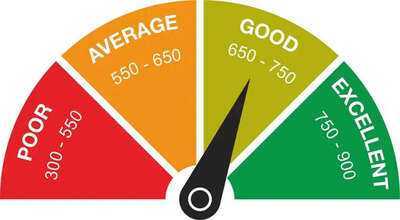
Credit Score Myths and Truths: A common sight at bank branches these days is young professionals seeking a loan for the first time, believing that a good job and a decent salary are enough for approval. But minutes after their documents are checked, they hear, "Your application has been rejected." They're left bewildered. ZET's report, "The Hidden Cost of Not Knowing," also points to this reality.
Studies show that most people only understand the importance of their credit score when a loan or credit card application is unexpectedly rejected or they're offered a higher-than-expected interest rate. This awareness only comes after the damage has already been done. And this delay often derails people's ambitious plans. The question now is what the myths surrounding credit scores are that are crucial to understand. Manish Shara, co-founder and CEO of ZET, a financial services company, explains every detail about this. Let's understand:
What are the five myths surrounding credit scores?
1. Does checking your credit score lower it?
This misconception is the most common. Checking your credit score is called a soft inquiry and does not affect your score. Your score is only affected when a bank or NBFC conducts a hard inquiry. Therefore, it's important to check your score regularly, as this helps identify errors in your report quickly.
2. Does a low income or small position determine your credit score?
This is also incorrect. Your credit score reflects your credit repayment behavior, not your income. The amount of loans you borrowed and whether you paid them on time determine this. Even a person with a low income can maintain a high score by making timely payments, whereas a high-income person can easily lose their score if they default on a payment.
3. Does closing old credit cards increase your score?
Many people believe that having fewer cards is better, but the reality is the opposite. Old cards lengthen your credit history, which is an important component of your score. Closing old cards reduces your total limit, which increases your credit utilization ratio and can lower your score. Therefore, it's better to keep old cards active with light usage.
4. Is just paying the minimum dues enough?
Paying the minimum dues avoids late fees, but it doesn't protect your credit score in any way. Unpaid balances attract significant interest. Banks consider this a sign of financial stress. Even a single default can impact your score for months, so paying in full is the strongest indicator.
5. Can't your credit score increase without taking a loan?
This belief is also outdated. FD-backed credit cards are readily available today. They don't require proof of income, allowing you to safely begin your credit journey. Such products help new users build scores of 750+ and are rapidly gaining popularity.
Why is awareness more important now than ever?
Because credit scores determine not just your loan but your financial opportunities for years to come. Correct information helps you avoid fear and make better decisions. A good understanding not only leads to cheaper loans but also strengthens long-term financial stability. Lack of knowledge about credit scores often becomes the biggest barrier between a good opportunity and the right outcome. An informed user not only becomes a strong borrower but also a confident part of India's growing financial infrastructure.
Disclaimer: This content has been sourced and edited from Dainik Jagran. While we have made modifications for clarity and presentation, the original content belongs to its respective authors and website. We do not claim ownership of the content.